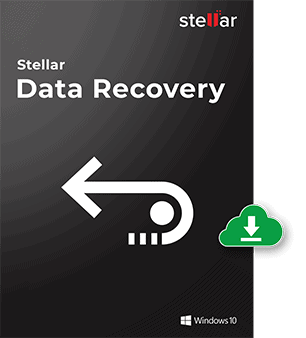Hard Drive Beeping: Why It Happens & How We Fix It – Seagate Case Study
If your computer can’t boot up and you can hear it making weak beeping noises, open it up and listen closer. That beeping noise could be coming from your computer’s hard disk drive, and if that is where the noise is coming from, we’re afraid that your hard drive beeping is very bad news.
Is Your Beeping Hard Drive Keeping You from Your Important Data?
Talk to an expert about your beeping hard drive and how to access your data. Get a no-hassle consultation today!

“What does a beeping hard drive mean?”
Hard disk drives do not normally beep. The beeping noise you hear comes from the struggles of the drive’s mechanical components. When the delicate instruments within your hard disk drive start to fail, your hard drive can produce all manner of unusual noises. A beeping sound isn’t something you ever want to hear coming from a hard drive. But when you do, your hard drive is actually communicating with you quite clearly. When you hear a Seagate hard drive beeping sound, that drive is telling you exactly what is wrong with it.
Sometimes, a hard drive can start beeping due to a failure of its electronics to supply enough power to the spindle motor, but this is a rare cause for hard drive beeping. More often than not, if a drive’s electronics have failed or are failing, the motor will not spin up at all.
Inside your hard drive, a spindle motor hub spins the hard disk platters inside at several thousand revolutions per minute. To read and write data to these disks, delicate read/write heads hover just a few nanometers away from the platter surfaces. If the heads crash onto the platters, they can get stuck and clamp down on the platters, holding them in place. The beeping sound actually comes from the spindle motor hub as it tries in vain to spin the platters.
Hard Drive Beeping can be caused by
Seized/stuck/burned-out spindle motor hub
Damaged read/write heads
Seized disk platters
A shorted PCB
A beeping hard drive cannot and should not be used.
Any data you don’t have backed up can only be retrieved from the device by data recovery specialist professionals with the means to safely take apart and fix your hard drive.
Running the drive outside of a data recovery lab that has the proper tools and expertise can severely worsen its condition and cause data loss, making successful data recovery difficult or impossible.
RELATED ARTICLES:
- Stuck Read/Write Heads Cause Seagate Drive to Beep
- The Story Behind Hard Drive Beeping Noises
- Beeping Hard Drive Data Recovery Services
“How Can I Repair My Hard Disk?”
Trying to run a beeping hard drive can force the spindle motor hub to burn itself out and become seized, complicating an already-messy data recovery scenario. The chances that the crashed read/write heads would unstick themselves from the platter surfaces on their own are slim to none. In cases of beeping hard drives, the read/write heads and platters usually sustain some degree of physical damage when they get stuck, although it tends to mark only a very small area of the platters since the actual tips of the read/write heads are nanometers in scale.
A beeping hard disk has physical damage you simply cannot fix on your own. There are no DIY stuck read/write heads and beeping hard disk repair techniques that can save you a trip to a data recovery lab. Even if the motor hub isn’t seized yet, it will be if you keep running the drive without addressing the root cause, it will seize up. The only way to deal with a beeping hard drive and salvage its data is to send the drive to a professional data recovery company.
Upgrading your computer always comes with some degree of risk. Hardware or software incompatibility issues can turn even a routine upgrade into a massive headache.
When you upgrade your computer, as the client in this Seagate hard drive repair case did, and suddenly can’t boot from your hard drive, you may naturally accuse the upgrade you’ve just done of playing some role in its failure.
However, in most cases of hard drive failure, it’s simply a coincidence. It’s safe to say that upgrading your BIOS will rarely cause your hard drive’s mechanical components to fail.
Here’s a case study in which the end-user came to us with a beeping hard drive after upgrading their PC. Once the upgrade was complete, they suddenly couldn’t boot up their machine. And their computer had started making an unusual beeping noise that, they soon discovered, was actually coming from their hard drive. Since they couldn’t access any of the data they had on the hard drive, they got in touch with us about their hard drive beeping problem.
Seagate Drive Repair Case Study: Hard Drive Beeping
Drive Model: Seagate Laptop Thin SSHD ST500LM000
Drive Capacity: 500 GB
Operating System: Windows
Situation: Client updated the BIOS on Dell E6500 series laptop and afterward, the system would no longer boot. The client’s inaccessible hard drive would make an intermittent beeping noise when plugged into any other computer via USB adapter.
Type of Data Recovered: Photos, Outlook PST files, and other documents
Binary Read: 99.9%
Gillware Data Recovery Case Rating: 9
Seagate Hard Drive Beeping and BitLocker Encryption
Our engineers examined the client’s beeping Seagate hard drive in our class-100 cleanroom lab. As we usually see in hard drive beeping situations, the read/write heads had become mangled. The platters had also sustained some damage, spreading dust across their surfaces. To get this hard drive up and working properly and create a disk image of its contents and important files, our engineers replaced the read/write heads with a compatible donor set and polished the platters clean with our special platter burnishing tools.
Usually, our engineers can use filesystem metadata to read data from only the used portions of a hard drive’s platters. By reading metadata such as the file definitions and bitmap, our engineers can focus only on the used area. This is extremely useful for our engineers (and helps our clients get their data back faster), especially when a hard drive has sustained heavy damage. But for this client, our engineers couldn’t rely on this technique because of something they had done to their hard drive.
Because the client’s hard drive had Bitlocker full-disk encryption, our engineers had no way to examine the data stored on the drive during the recovery and imaging process. In cases involving full-drive encryption, there’s no way to decrypt data on the fly while our engineers image the drives. And so it is extra important to get as much as possible since there is no way for our engineers to distinguish between used and unused areas on the disk. After creating as complete a disk image as possible, our technicians decrypt it and analyze the results.
If critical data is missing, our engineers must bring the drive back into the cleanroom and see if any further data recovery is possible. Our engineers managed to successfully read 99.9% of the contents of this client’s hard disk platters. Now we just had to see if anything important was hiding in that remaining 0.1%.
Beeping Seagate Drive Repair Results
After receiving the BitLocker decryption key from the client, our engineers could decrypt the disk image of their (currently no longer) beeping Seagate hard drive. Upon decryption, our data recovery engineers found that they’d gotten all of the client’s most critical data. The client’s photos, email archives, and documents were all fully recovered and free of corruption and data loss. We rated this Seagate drive repair case study a 9 on our ten-point data recovery case rating scale.
Data Recovery Software to recover
lost or deleted data on Windows
If you’ve lost or deleted any crucial files or folders from your PC, hard disk drive, or USB drive and need to recover it instantly, try our recommended data recovery tool.
Retrieve deleted or lost documents, videos, email files, photos, and more
Restore data from PCs, laptops, HDDs, SSDs, USB drives, etc.
Recover data lost due to deletion, formatting, or corruption

